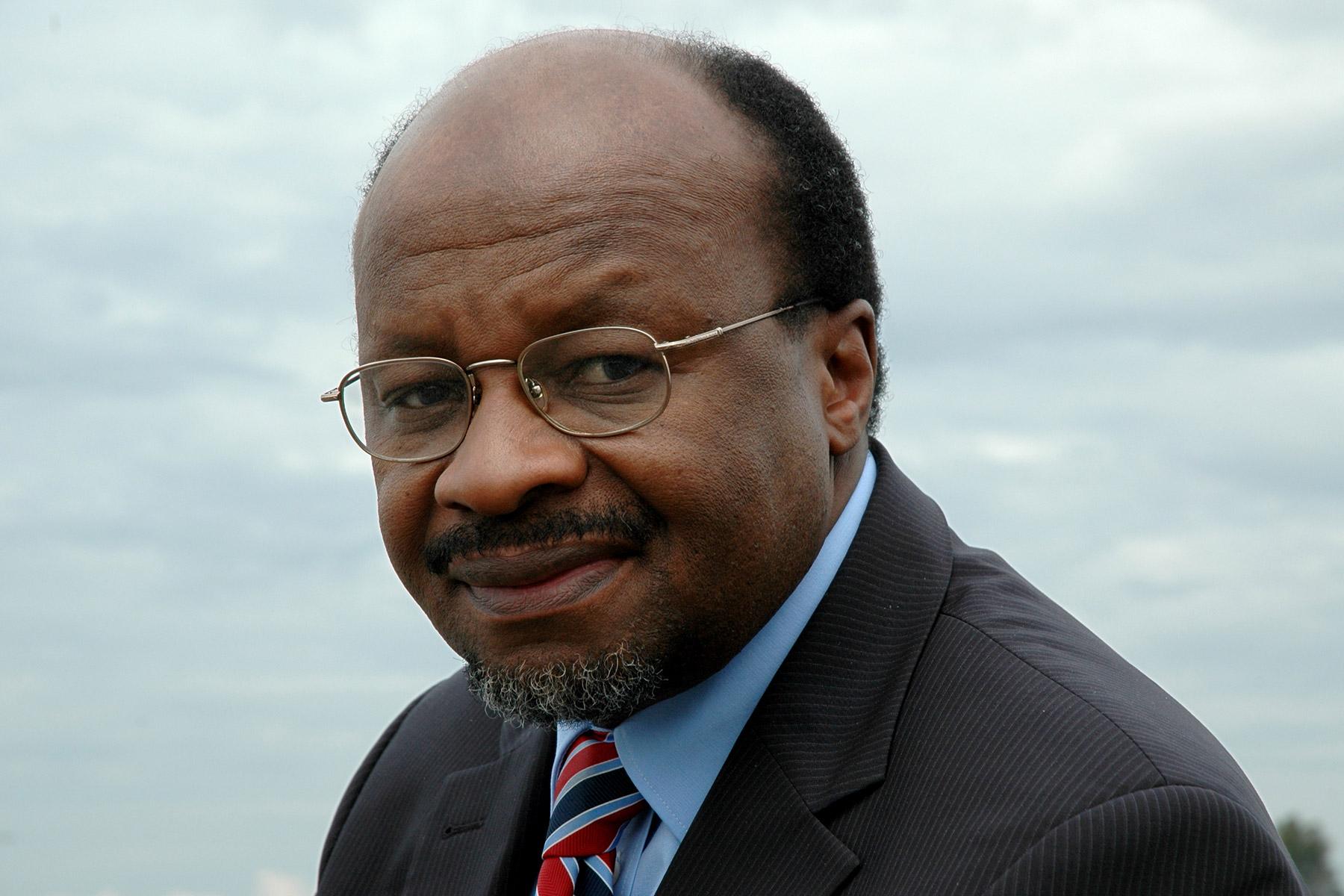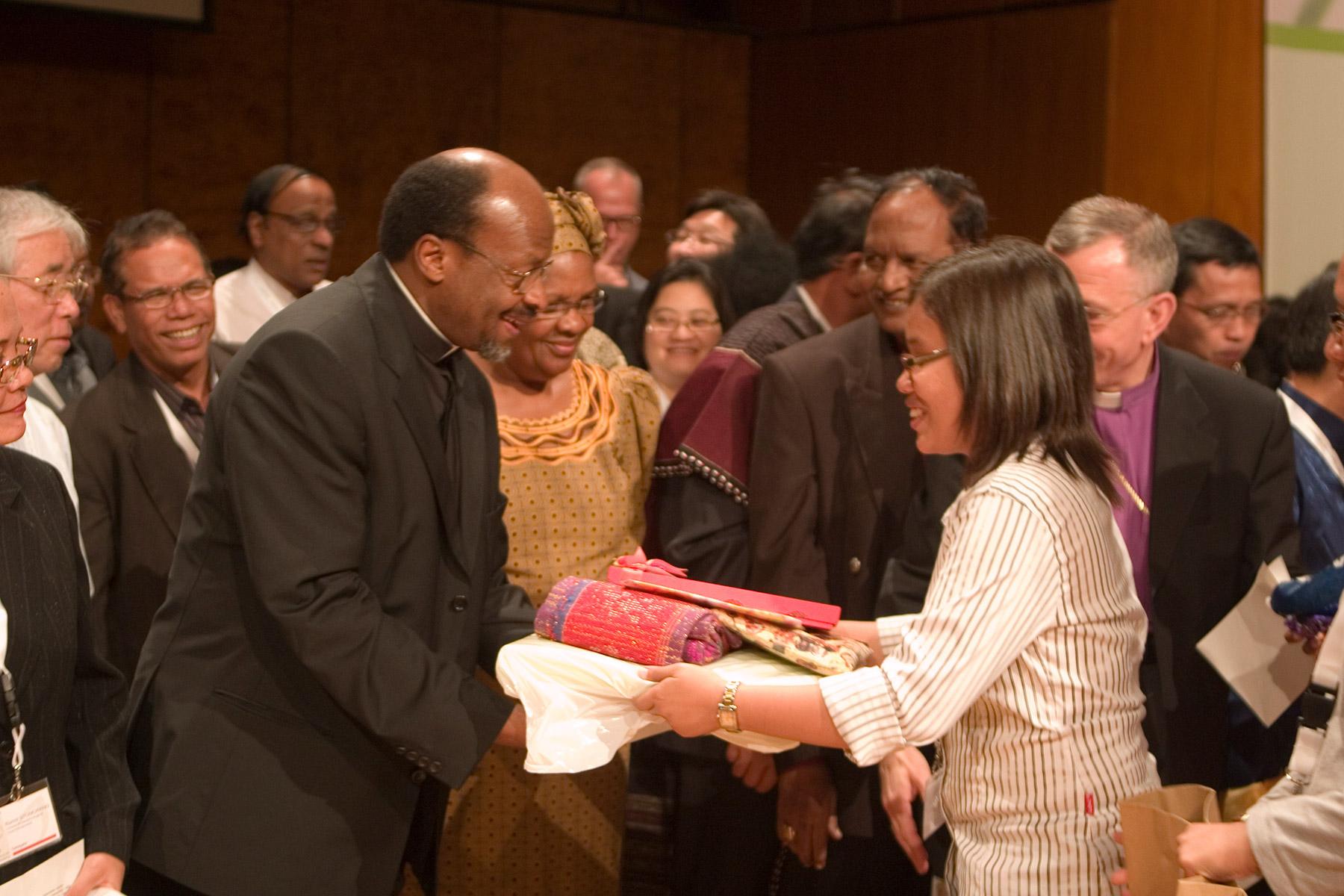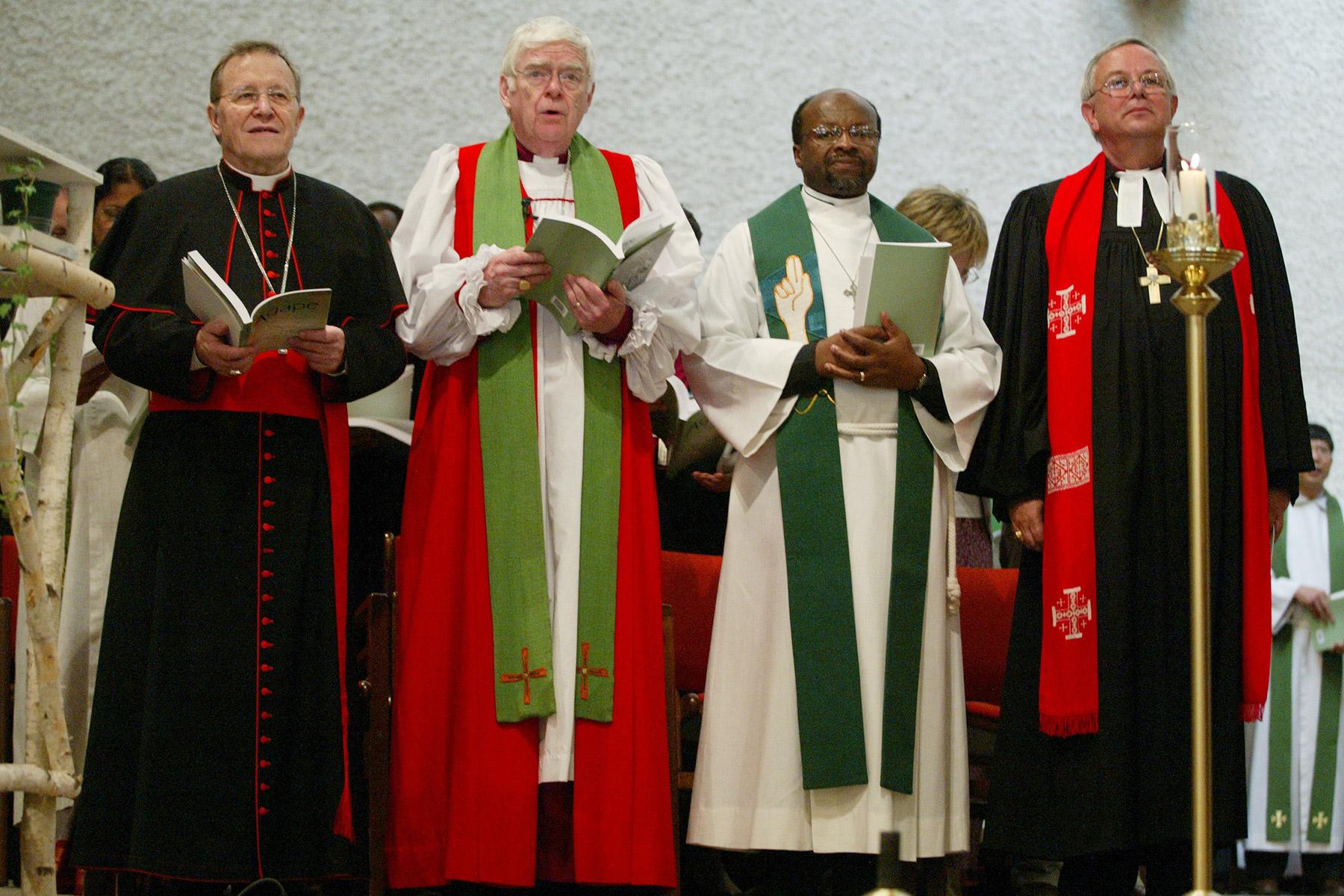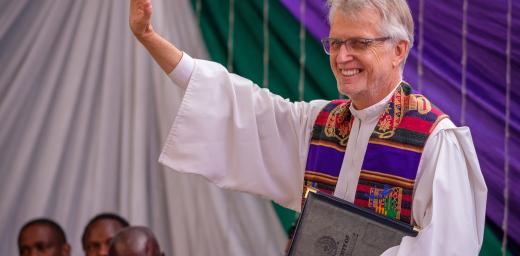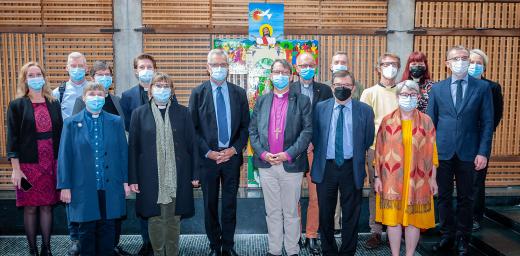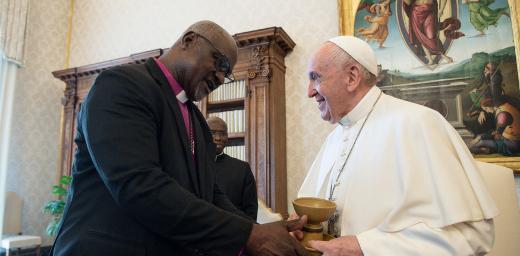The first LWF General Secretary from global south looks back at highlights from his years in office
(LWI) - Growing up in Zimbabwe, or Rhodesia as it was called under colonial rule, Ishmael Noko clearly remembers the day his father returned home with a typewriter and asked his young son if he could learn to type. Noko senior was a Lutheran pastor who was very active in the Southern Africa Bible Society, translating the gospels and other texts into different languages including his mother tongue Sesotho.
“There I was, this 12-year-old boy, pecking away on the keys like a chicken, and the first text my father handed to me was the constitution of the Lutheran World Federation (LWF),” the former General Secretary recalls with a smile. “I was so absorbed in typing the words he had translated, but I had no idea what the LWF was, or what this document would later mean to me!” he exclaims.
As Rev. Dr Ishmael Noko marked his 80th birthday on 29 October, he looked back over some key moments of his time in leadership, including a growing ecclesial self-understanding of the global communion of Lutheran churches and the signing of a landmark agreement on the doctrine of justification between Lutherans and the Roman Catholic church.
Tell us about your journey to ministry and when you first felt a call to ordination?
I learnt about the church through my parents and grandparents. My grandfather had been a lay preacher, although he died before I was born. But I was surrounded by ministers in my youth and so my calling was not a dramatic experience, as some have had, but rather a growing intuition.
I also overheard a conversation, one day, about concerns that our pastors could not be appointed to high positions as they did not have sufficient theological education. I was intrigued as I knew my father did not have a divinity degree, but I wanted to have those qualifications and fulfil those dreams of leadership – for myself and for them.
You studied in South Africa first, didn’t you, before moving to Canada for a master’s degree and a PhD?
Yes, I studied at the University of South Africa, the University of Zululand, and the Lutheran Theological College there in preparation for my ordination. But during my studies I met [the late Lutheran bishop and liberation theologian] Manas Buthelezi who was earned his PhD in the United States. He became my professor and was the first African Doctor of Theology in the Lutheran church in South Africa. He convinced me to pursue studies abroad and 10 years later, I was the first African pastor in my home church in Zimbabwe to have a doctorate in theology.
You were ordained in 1972 before spending six years studying and working in Canada - how did that experience shape your vision of the global communion?
Yes, I got married before I was ordained and then we moved to Canada, to Saskatoon and then to Montreal, Quebec. I also worked as assistant pastor in a congregation of parishioners from mainly Norwegian and German origin. It was a rewarding experience for me and my family, coming from apartheid Southern Africa, where racial laws were applied in all spheres of life, including the administration of the sacraments.
I grew to understand the meaning of the universality of the church. The apostles’ Creed became so meaningful for me, because I believe in the one church of Jesus Christ, with no boundaries. After that, in 1977, I went to lecture at the University of Botswana, where I became head of the Theology and Religious Studies department and then later the Dean of the Faculty of Humanities.
What influenced your decision to move to Geneva in 1982 to work for LWF's World Service Department?
I was very happy teaching, but I was offered a job by the LWF dealing with refugees. The position included promoting closer collaboration between the LWF and agencies such as the United Nations High Commissioner for Refugees, the Organization of African Unity and the World Council of Churches. Originally, we just planned to go for three years and then I would return to the university. But our three children were settling well in Switzerland and so we stayed on there.
The work was all very new and challenging for me, dealing with the UN, with political institutions and policy formation. I took part in high level meetings where we tried to redefine the technical language of refugee status (economic, political etc.) and I came up with the definition of a refugee as a person who crosses borders without an invitation. It also became clearer to me what Jesus and his family went through when they fled from the Holy Land into Egypt.
That was a very challenging time, with the famine in Ethiopia, the start of the HIV-AIDS crisis, the growing numbers of refugees in Africa?
Yes, we had the largest program of humanitarian assistance implementing the response to the famine. We also had so many internally displaced people, especially from the civil war in Angola, but because they were not crossing any borders, they were not classified as refugees. Similarly, in Zimbabwe, which had recently become independent, there were many people fleeing the conflict between [Robert] Mugabe and [Joshua] Nkomo, but there was a hesitation, at first, to classify them as refugees.
I also remember the first discussion I had about AIDS in May 1988 with a man in Uganda who had been researching the origins of the virus. At that time, people still thought it was limited to the gay community, but the world became gripped by fear and stigmatization.
The two major events at that time were the fall of the Berlin Wall and [Nelson] Mandela’s release from prison. They were so significant because the communist wall did not just divide Europe into East and West, but it extended from the north to the south pole, cutting across the globe and political parties in Africa were aligned according to that division.
In 1994, after working for World Service and the Department for Church Cooperation, you became the first African to be appointed as General Secretary, a post you held for 16 years?
Yes, and I think it was a major achievement for the Lutheran churches to look for leadership from a person from the southern hemisphere. Remember that none of the Christian world communions had ever had a black person in leadership, only the World Council of Churches at that time.
In the LWF, the leadership was always either from Europe or North America, so the decision challenged them to have confidence in an African. It also challenged the churches in the southern hemisphere to think differently about their role and their contribution to the global communion of churches. It laid the foundation for a change in relationships between north and south, east, and west, as well as opening doors to the possibility of leadership from any ethnicity, region, or gender.
Financially, it was also a challenge for wealthier churches to continue supporting the global communion, even with a leader from a region which was not rich in economic resources. An important development which I pushed for was to persuade the Council to establish an endowment fund in Switzerland to make the LWF a stable and sustainable instrument of the churches into the future.


